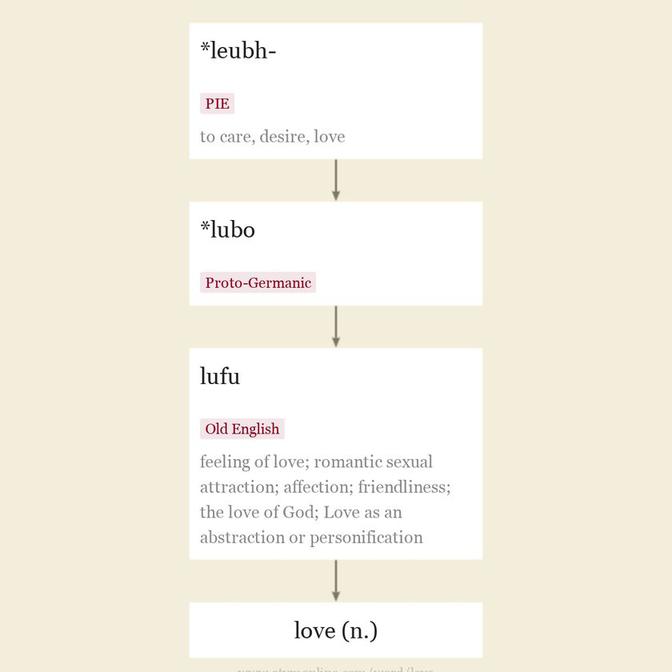love-scene n.
"
Entries linking to love-scene

Old English lufu "
The weakened sense "
To fall in love is attested from early 15c.; to be in love with (someone) is from c. 1500. To make love is from 1570s in the sense "
"Even now," she thought, "almost no one remembers Esteban and Pepita but myself. Camilla alone remembers her Uncle Pio and her son; this woman, her mother. But soon we shall die and all memory of those five will have left the earth, and we ourselves shall be loved for a while and forgotten. But the love will have been enough; all those impulses of love return the love that made them. Even memory is not necessary for love. There is a land of the living and a land of the dead and the bridge is love, the only survival, the only meaning." [Thornton Wilder, "Bridge of San Luis Rey," 1927]
1530s, "
According to Beekes' sources, the Greek word "
A theatrical word; the wider senses come from the notion of the painted drops and hangings on stage as the "
Hence the sense in reference to a (specified) activity and its realm or sphere (1931, as in the poetry scene) and U.S. slang sense of "
Meaning "
Behind the scenes "
The word was in Middle English in the Latin form, scena, "
updated on September 18, 2018